4 of a Kind – Interview with Jack Marchetti
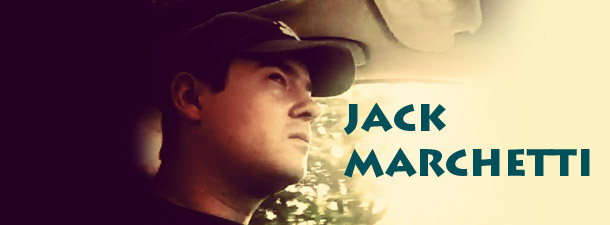
Jack Marchetti‘s dream is to see his script ‘4 of a Kind’ come to life on the big screen. This is a familiar dream for any writer, but Jack needs to finish his film before he loses his sight. We caught up with Jack last week during the launch of his Kickstarter to discuss his film, the campaign, and Cone Rod Dystrophy. Learn how you can become a part of helping Jack realize his dream, and have the rare opportunity to actually be involved with the film.
MV: Welcome to Movie Vine, Jack. Thank you so much for taking the time to discuss your film ‘4 of a Kind’ with us.
Jack: Thanks for having me.
MV: You wrote the script nearly a decade ago, and are currently trying to raise the funding to direct the feature length film. What can you tell us about this incredible journey?
Jack: I blame ‘Reservoir Dogs’. I watched that movie about 500 times while I was in college. I used to put it on almost every night and fall asleep to it. At some point I thought, “That’s something I want to do”. I always liked movies, but never had much of an interest in making them. I’m a pretty left-brained person; for my day job I’m a software developer. I never really saw myself as a creative person that way. At some point though I started reading up on screenwriting and reading screenplays, and the syntax of a script really appealed to me. While it’s not exactly “source code” like you’d find in an application, the structure, layout and format appealed to me, so I typed FADE IN: for the first time.
‘4 of a Kind’ is the third script I ever wrote. The first one was awful; the second one was less awful. And that’s part of the process. The more you write, the better you get – hopefully. I’ve written several other scripts since, but this was the one that I always go back to and tinker with. It’s my favorite one. It’s the one I’ve always wanted to see. And well, that’s basically why I’m here.
MV: Do you remember what originally sparked the idea for the script?
Jack: I was working on another script and my buddy Mike came up with an idea for a screenplay about four friends who were mobsters. The Project Greenlight deadline was a few months away, so over many nights and lots of coffee and cigarettes, we fleshed out the overall idea. I then went and wrote the first draft in about two weeks. The script has drastically evolved since then and Mike is no longer part of the project. I’m sure if the Kickstarter goes well and we actually start shooting, he’ll play a part but he hasn’t been part of the writing process for many years and many drafts.
MV: This will be your directorial debut. Is that daunting, or do you feel everything will come naturally since you wrote it?
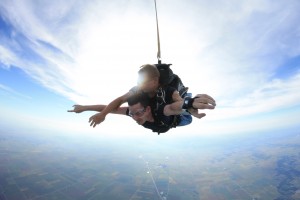
Jack: The part I find daunting is that I don’t know if I have the personality to command a movie set. I’d like to think I could but it’s something that doesn’t come naturally to me because I’m really laid back and easy going. I’ve also never had to direct actors. I actually thought about taking acting classes if the Kickstarter works just so I can more formally understand their world and lingo.
I’ve seen the movie in my head many times and I know the shots I want to get, so that part I’m not worried about. Getting the performances from the actors and being able to see the subtle details and colors etc … will prove challenging not only from my inexperience, but of course my eye sight.
MV: You are planning to film on location in Chicago. Is the city itself somewhat of a character within the story?
Jack: To a point, sure. It’s not nearly as much a character as Baltimore was to “The Wire”.
I’d love to actually show parts of Chicago that you typically don’t see. There are several locations where I hope we’ll be able to shoot. Not the touristy areas, but the parts where people actually live. The dive diner that’s open 24 hours that almost everyone on the south side has gone to after a drunken night at the south side Irish bars, for instance. One of the locations I’m hoping for is the main character meeting with his handler on one of the Water taxis which travel up and down the Chicago River. This is obviously the touristy, downtown area, but the skyline is pretty freaking amazing at night and would look fantastic.
There are some true mob stories from Chicago which I’ve changed up just enough and made part of the characters’ lives as well. Nothing is really based off anything, but inspired by? Sure.
I might actually revisit some parts of the script and add in the element of how violent Chicago has gotten over the past few years. The murder rate has gone through the roof. This year, more people were murdered in Chicago than soldiers killed in Afghanistan. Last year there was an outbreak of attacks in downtown Chicago and just recently there was a drive by shooting on the Magnificent Mile. Last year, while I was eating Chipotle, a guy was shot in the head on the State Street bridge, which was only a block or so away. As segregated as Chicago is, it’s almost like the line that separated the violent areas from the non-violent is blurring.
MV: ‘4 of a Kind’ deals with some pretty heavy themes like trying to break away from the mafia, betrayal, revenge, and the testing of loyalties. How were you able to live in that dark world while writing, but still keep your sanity?
Jack: Those are pretty universal truths and themes that you can find even in a romantic comedy for instance, so exploring those primal themes isn’t that difficult. If you have no sense of loyalty or betrayal or revenge, then you have no soul. As far as creating the dark world with violence and seedy characters – I blame television and Scorsese movies.
All kidding aside, I grew up in a relatively tough neighborhood known as “Pilsen” which is on the southwest side of Chicago. While I lived above my Dad’s restaurant and had a pretty normal middle-class upbringing, many of my friends growing up were gang bangers. The street I basically grew up on, “Oakley”, was shown on an episode of History Channel’s GangLand which showcased the prevalent gang from my neighborhood: The Satan Disciples.
So I’m not sure if any of that helped me in creating the dark and gritty world, but I’m sure it didn’t hurt.
MV: You have mentioned before how important music is to your writing process. Was there a particular song or artist that helped you through the various drafts?
Jack: A lot of Eminem and a lot of Nine Inch Nails. Throw in some Slayer, Pantera and Slipknot for the more action-oriented parts.
Nine Inch Nails is so atmospheric that I almost always have them on when I’m writing.
MV: When you were writing the original script, before anyone read it, did you have a feeling that it would be the one that defined you as a writer?
Jack: Maybe not define me, but it was the first screenplay where I felt like I was telling a story and not just writing cool scenes or compiling random things that happened to me and my friends. I did write a script like that, and turned it into a TV spec, and it was in the Top 25% for the Page Awards this year.
But back to ‘4 of a Kind’, I knew it was good, and I knew I had something. I still feel that way. Anytime I take a break from it and come back and read it, it’s like reuniting with long lost friends. Even though the characters are quite shady and basically criminals, I’d probably be friends with them. Not sure what that says about me.
MV: ‘4 of a Kind’ was a top 100 semi-finalist in the third season of Project Greenlight. What was that experience like?
Jack: It was pretty surreal. Part of entering the contests required you to peer review. So you had to read three screenplays, give honest feedback, and based off those scores, the Top 1000 was chosen. After doing my reviews I knew we’d make the Top 1000. I had no idea we’d advance to the Top 100 though.
Right after they announced the Top 100 I received an e-mail from Live Planet, Matt Damon and Ben Affleck’s production company. There were all these forms we had to sign including a background check. We had to give Miramax right of first refusal, and we had to shoot a video. I’m saying “we” right now because at that point my buddy Mike was still an active partner.
It took them over a month to then get to the top 5, which turned into 6 and we didn’t make it. Disappointed would put it mildly. I equate it to American Idol where on the last show before they go to the live shows, they bring in contestants and they sit in front of the judges and they get a yes or a no. To go that far and be told no is just devastating.
MV: You were a quarter-finalist in the Blue Cat competition as well. How important is it for writers to enter screenwriting competitions?
Jack: I’m not sure exactly. I mean, I’ve never had anyone who could purchase my screenplay ask to read my work because of a contest placement. It helps to put it on your “resume” obviously as it’s a sign that your script doesn’t suck, because sadly most of them do; I’ve written plenty that suck. So being able to say you placed is important in that regard and if you have zero connections it might be the only chance you have of getting attention. But just by placing doesn’t mean for a second that you’ll suddenly get calls from people to read your work. At least, that hasn’t happened to me.
MV: You were diagnosed with Cone Rod Dystrophy at a very young age. Do you mind sharing with our readers exactly what this is and how it has affected you?
Jack: Your cones and rods are photoreceptors which are part of your retina. They help you see light, movement, color etc… Because of some stupid gene mutation, mine die off and when they die off, you get permanent vision loss. That vision loss is mainly peripheral vision, so it’s like getting extreme tunnel vision. I’m still doing pretty well. I don’t use a cane and I can still drive, although I typically limit myself to day light only driving.
Now my center vision is pretty much still intact and rather acute. I can read parts of the 20/30 line with my contact lenses in, on a good day. Where I’m really at a loss is with night vision. In a dark bar or restaurant I might as well have my eyes closed, so I avoid them as much as possible.
MV: Have you found that your perception of life has changed after watching your brother lose his sight?
Jack: My perception of life changed when I was 13 and knew I would be blind one day. At that point they were really worried about puberty and how the massive hormonal changes that take place would affect my vision. People diagnosed with my disease sometimes go blind immediately; sometimes it takes a life time. So the randomness of it all kinda makes you live slightly differently when you know at some point you’re not going to be able to see.
My brother’s rapid vision loss has been a surprise specifically because his vision was always better than mine. So it’s like looking into the future when I see him walking with a cane and starting to learn braille.
MV: At what point did you decide that you would have to direct and produce ‘4 of a Kind’ yourself in order to have the chance to actually see it?
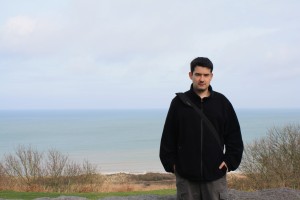
Jack: I never really saw myself as a director or film maker, so as a writer you’re trying to get someone to purchase your spec screenplay. Back in December or January, I was on the train home and got an e-mail from my friend Dan who works at a production company in Hollywood. He just got notes back from someone and the notes completely contradicted notes I had previously had. It was almost as if they saw the other notes and said take all of that out and go back to that other draft.
At that point, we both just said “screw it” and let’s do the version we want to do. Well, neither of us has the money to finance this, so our first instinct was to create a short, sort of as an extended trailer in the hopes that it would attract attention. I think the guys who did ‘Saw’ did this and it worked for them. After discussing it with the producers who had optioned another screenplay of mine, they said doing a short was dumb, and would be a waste of time. They recommended if we’re gonna shoot it, shoot the feature.
I then started following a lot of Kickstarter projects and saw that some film projects were raising six figures. If I was going to make this movie, I didn’t want to make it for 10k or even 20k. I wanted to be able to use the best camera package we could and at least try and get good actors. No A-listers obviously, but some talented B-listers, perhaps. We could also try and parlay the Kickstarter success with private investors and then really try and get a known cast.
So it was basically contradictory creative notes that led me to this point. Now I don’t have a problem with all notes, I’ve had plenty over the years that have made the script that much better. But at some point you just have to go with what you want to make, all else be damned.
MV: Congratulations on the successful launch of your Kickstarter campaign. For those who may not know how the campaign will work, could you give us a brief description of what this will help you accomplish?
Jack: We’re basically raising the entire budget, $100,000 through Kickstarter. That seems like a lot of money, but it’s still a very low, micro budget for a film. Now some people go to Kickstarter to try and raise additional money to perhaps rent a better camera, or to raise finishing funds for color grading or sound mixing.
We’re raising it all, so if we don’t raise the $100,000 then there really is no movie. Kickstarter is an all-or-nothing proposition, which I like actually. IndieGoGo lets you choose to keep whatever you raise, which doesn’t protect your backers at all. If I raised $13,000 out of $100,000 – I still technically have to make good on my promise to make the film for all the people who backed it, and that’s not fair to them because I really wouldn’t want to try to make this for $13,000.
MV: What are some of the things that surprised you as you researched production costs?
Jack: One of the scenes that I really look forward to shooting is the main character hopping on a train and entering the city – almost like bringing the audience into the story. I always liked that metaphor to open the movie.
Anyway, I reached out to the Chicago film office and they got me in touch with the people at the C.T.A (Chicago Transit Authority) on how much it would cost to shoot on their trains. It was something like $4000 + the cost of a worker at time and a half for twelve hours + $900 per train car – or something to that affect. When I told them it was an indie and that we’d be on the train for all of 20 seconds to shoot, they said it didn’t matter. I see their point, you’re working near rail lines which can kill you but I thought they might have a cost for say an indie, and a cost for say Transformers 3? They do not; it costs the same for all productions.
Also I was amazed at how cheap permits were. It’s only like $25 for a permit to film somewhere publicly. Of course if you need traffic or crowd control you need to hire a police officer for the entire day and pay him for twelve hours, which is where it gets pricey.
MV: What are the next steps in your pre-production process?
Jack: Nothing really. At this point if the Kickstarter doesn’t work out, then there basically is no movie and I’ll probably just go back to trying to sell the screenplay. I think it’s gotten a ton better since deciding I wanted to shoot it, so I think I’ll find less contradictory notes.
But as of now, there really is no formal pre-production going on because if the Kickstarter fails, there is no backup plan for money to go forward.
I did however do plenty of Kickstarter pre-production including forming a C-Corporation, and adjusting my fiscal year to avoid paying taxes on the money raised by the end of this year. Kickstarter is considered income and not an investment so you have to pay taxes on it. Of course there are accounting methods such as the accrual method to avoid most of it until the final product is made, but I just went with a corporation and adjusted my fiscal year. Exciting stuff, right?
MV: I love how you mention in your campaign video, “the purpose of page one is to get you to turn to page two”. That can be true in life as well. You are fighting time and that in turn motivates you to follow your passion project. What would you say to others who are also fighting debilitating obstacles in life?
Jack: Don’t let it define you. Also, find a way to laugh about it. Going blind sucks, and it sucks really bad, but it’s not a death sentence. My brother and I make fun of each other all the time when we knock things over or bump into things. I know it’s extremely frustrating for him. He has two daughters now and he has a hard time making out their faces, which is just tragic on any level, but he can see them, he’s not completely blind yet. With all that he still can find time to laugh about it, although like I said, I know it’s extremely frustrating for him.
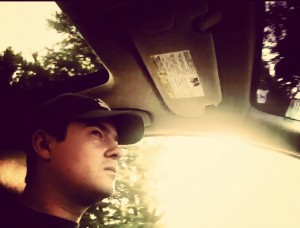
And lastly I’d say trust in science. They’re making incredible advancements with stem cells and gene therapy. I seriously think they’ll have a form of treatment, perhaps not a cure, within ten years. And if not, then so be it and I’ll be cool with what I did with myself while I was able to see. No regrets, right?
MV: One last question, if you had to choose the perfect mobster nickname for yourself at this point in your life and career what would it be?
Jack: Actually I think people are given nick names when they’re not cool enough or memorable enough by their own actual name.
So I want to be known as “Jack”, kind of like “Omar” from “The Wire”. The minute you heard “Omar’s coming” you knew what was up.
However if I had to pick a nick name? How about Jacky Four Eyes?
And in the interest of full disclosure, Jack is my nickname. My real name is John. It’s an Irish thing.
MV: You are an inspiration to everyone around you, Jack. Thank you for taking the time to share with us today. You are proof that anything is possible with hard work and preparation.
Jack: Thanks for having me and taking the time.
*Be sure to check out the ‘4 of a Kind’ Kickstarter Campaign here. The backer rewards vary from an HD digital download of the finished film, to receiving development notes on your own script, or you can be an extra or even a producer on the film. These are just a few of the great perks offered for your help in funding the film and Jack’s dream. There is something for everyone and every dollar helps. Like the ‘4 of a Kind’ official Facebook page for additional updates.
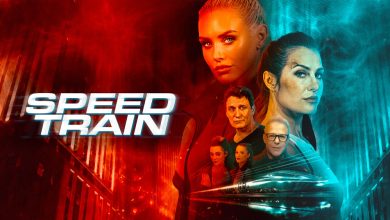
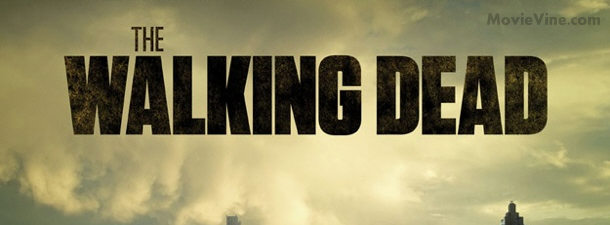


2 Hours Left! Raising funds to make a film before he loses his sight http://t.co/Wr8IpOIk interview http://t.co/PZjotP1Z @JackMarchetti
Raising funds to make a film before he loses his vision. Can you help? http://t.co/AihSGseS *interview http://t.co/PZjotP1Z @JackMarchetti
Raising funds to make a film before he loses his vision.. http://t.co/OO5o4hGm … @MovieVine interview: http://t.co/Apbdvfao … @JackMarchetti
Tell everyone you know 5 hours left to help @JackMarchetti’s dream come true! http://t.co/n1lkfLz7 Jack’s MV interview http://t.co/t4Zay8PU
Raising funds to make a film before he loses his vision. Can you help? http://t.co/AihSGseS *interview: http://t.co/PZjotP1Z @JackMarchetti
Jack (@jackmarchetti) needs to finish his film before he loses his sight… http://t.co/Apbdvfao PLEASE RT !!! *Interview by @phantomjan
He listens to NIN. RT this. RT @movievine: Jack (@jackmarchetti) needs to finish his film before he loses his sight… http://t.co/xmUKBqdU
Jack (@jackmarchetti) needs to finish his film before he loses his sight… http://t.co/PZjotP1Z PLEASE RT !!!
4 of a Kind – Interview with Jack Marchetti (@jackmarchetti) … http://t.co/PZjotP1Z by @phantomjan
Bastard! #seemslikeniceguy RT @katietoddband: backed @JackMarchetti’s @kickstarter, then found out his name isn’t Jack http://t.co/t7rofXO5
@katietoddband here’s the latest interview if you wanted to check it out. http://t.co/joVBDQCA cc: @phantomjan
@MovieVine’s interview w/Screenwriter/Director @JackMarchetti on #4ofaKind–His film and impending blindness. http://t.co/UY2ZNU4H
@MovieVine’s interview with Screenwriter/Director @JackMarchetti on #4ofaKind & his road to making his film a reality. http://t.co/UY2ZNU4H
#4ofaKind Writer/Director is going blind & he is making his script into a film. Would you have the guts to do it? http://t.co/qwyBepeg
#4ofaKind Writer/Director is going blind & he is making his script into a film. Would you have the guts to do it? http://t.co/UY2ZNU4H
Check out my @movievine interview with @jackmarchetti and find out how you can help with his film #4ofaKind http://t.co/t4Zay8PU
Thanks to @movievine for sharing my story. http://t.co/joVBDQCA http://t.co/wWqqThT7 @kickstarter
4 of a Kind – Interview with Jack Marchetti http://t.co/joVBDQCA via @movievine
@MovieVine’s interview with Screenwriter/Director @JackMarchetti on #4ofaKind & his road to making his film. http://t.co/UY2ZNU4H